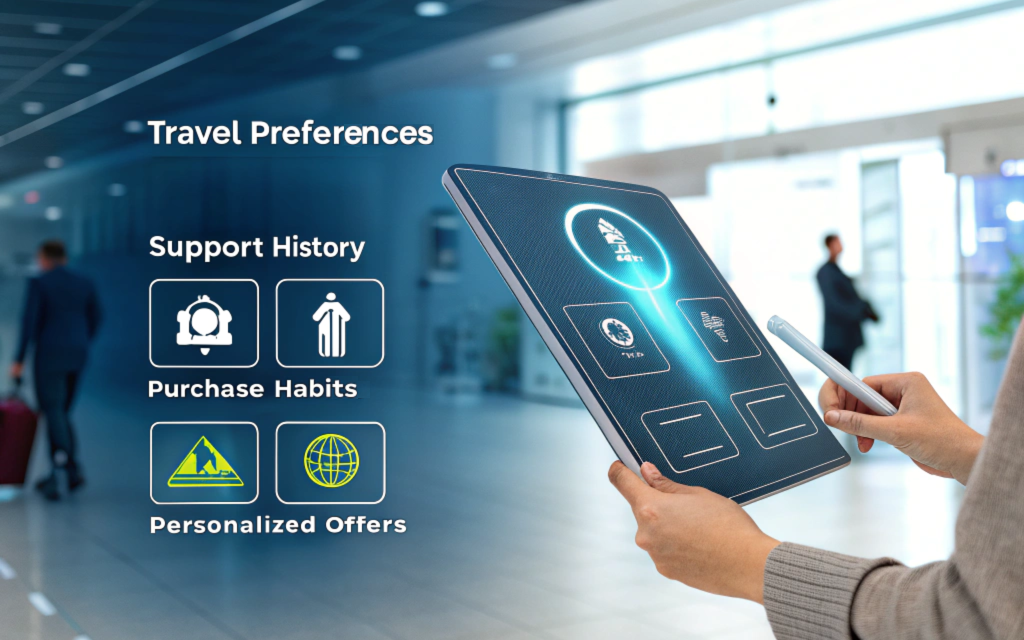We, as customers, crave easy, fast, and—most importantly—awesome. But too often, the experience we get is anything but. Think of the frustrating “CX (Customer Experience) sins” we encounter daily—the endless call tree maze, hidden fees that appear like magic on your final bill, or the script-bound conversations where no one seems to have the freedom—or information—to truly help. Now, imagine a world where these pain points are addressed effortlessly, thanks to the power of AI and a new way to share and use information.
In some industries, that shift is already happening. Epic, one of the biggest electronic medical records (EMR) companies, is collaborating with other EMR providers to make healthcare information more accessible across institutions. This approach means that no matter where you go for treatment, your health records travel with you, eliminating redundant forms and improving care coordination. Similarly, Google’s single sign-on is a familiar example of simplifying access: once you’re logged into Google, you’re granted secure access to a host of other sites without needing additional passwords. Even facial recognition and multi-factor authentication (MFA) are evolving how we interact with devices, letting us access sensitive information seamlessly and securely.
These examples show how the convenience of unified access can improve experiences and elevate customer expectations. Imagine if this concept were extended to every area of CX through a Universal Customer Experience Passport (UCXP)—a disruptive way to leverage AI for a CX transformation that prioritizes simplicity, speed, and satisfaction. Here’s how it could redefine customer experience for the better.
The Trouble with Today’s CX: Why We Need Change
We all know the drill. You try to reach customer support, only to be met with an endless maze of prompts and hold music. Or you’re hit with CAPTCHA puzzles when all you want is to log in and get going. And let’s not even get started on those so-called “free trials” that require a credit card to cancel.
In 2024, these CX “sins” just shouldn’t exist. Companies are sitting on vast troves of data that, if used wisely, could personalize and simplify every customer interaction. But they’re too often missing the mark. What if we could harness that data, responsibly and transparently, to create a CX experience that feels like it was designed just for us?
Introducing the Universal Customer Experience Passport (UCXP)
Imagine a single, portable profile—your UCXP—that companies could use to bypass the standard frustrations. It’s a digital blueprint of your preferences, your purchasing habits, and your priorities, all rolled into one, accessible only when you choose to share it.
The idea is simple but powerful: with the UCXP, companies could cut the line on redundant questions, skip the mundane, and avoid the predictable annoyances. Need help with an order? The support rep would know your history without needing to rehash your info for the tenth time. Want a quick booking? The travel agency would already have your preferences for flights, hotels, and even meal options on file, no repeats necessary.
How the UCXP Can Address the Top CX Sins
- The Call Tree Maze
With UCXP, AI could instantly route calls based on context and past interactions. No more “Press 1 for sales, 2 for support” with endless loops—it would confirm that you’re probably looking for help with “x”, and your call could go straight to someone ready to help. - Hidden Support Lines and Robotic Chatbots
Forget the days of playing hide-and-seek with phone numbers or getting a chatbot that’s clueless. Equipped with your UCXP, AI-powered chat could connect you with precisely what you need, or at least to a real person when the issue calls for it. - CAPTCHA Puzzles and Repeat Forms
With the UCXP, logins and forms could become refreshingly straightforward. Your profile would verify your identity, skipping the squiggly letters and endless form fields. The goal? Simplicity. - Hidden Fees and Fine Print
AI could proactively alert you to charges before they hit, using transparency as a fundamental design. The UCXP would keep hidden fees at bay, ensuring clarity and trust.
Embracing Privacy and Control
Now, let’s address the big question: privacy. With AI and data, trust is everything. The UCXP isn’t about companies owning your data; it’s about you selectively sharing information to make interactions smoother. Access to your UCXP would require a combination of facial recognition, voice verification, and a unique code sent to your phone—making unauthorized access nearly impossible. To gain entry, someone would need to have you physically present and cooperating, which is highly unlikely. Think of it as a customer experience passport, offering quick, secure access without giving away control, ensuring your data remains yours alone to share.
The AI-Powered CX of Tomorrow
So, what would a world with UCXP look like? Fast, personal, and free of CX sins. We’d move from mundane, repetitive interactions to meaningful, satisfying ones. With AI, companies could focus on providing genuine service, one that feels like it was made with us in mind—because it would be!
Tag/s:Artificial IntelligenceBusiness TransformationCustomer ExperienceCustomer JourneyDigital DisruptionService Desk





